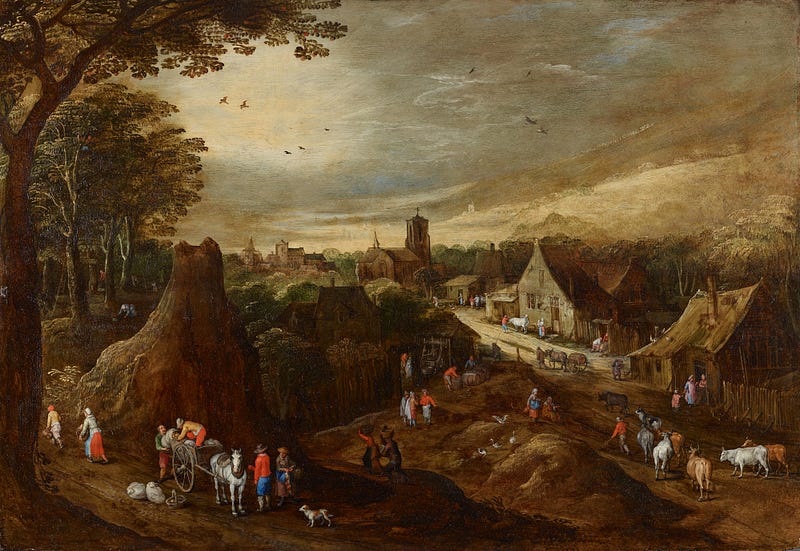A Discussion of Bourgeois Equality Chapter 22 “And He Formulated the Bourgeois Deal”
In this fourth and final chapter exploring Adam Smith’s impact, Dr. McCloskey explores his intellectual contribution toward a cultural shift to a favorable view of the rising bourgeois class.
In the past three chapters, she has been discussing his application of virtue ethics to properly understand his writings.
Now, she is wrapping this up by discussing how his work advances the trade-tested betterment system that was in its beginning.
The Bourgeois Deal
Back in chapter 3, McCloskey detailed how the Bourgeois Deal replaced the Aristocratic Deal.
For the first time, the Bourgeois Deal granted common people liberty and dignity to enjoy the fruits of voluntary trading and the resulting profits with a recognition that such a system leads to gains for all. In contrast, the Aristocratic Deal it replaced started with the idea that people are born to their station in life with no alternative to work their way up. It was a zero sum game in contrast to the bourgeois win-win system.
As McCloskey points out in this chapter, “In aristocratic and peasant theory you do not make yourself and cannot advance in condition. Forget about trade-tested betterment.” (p. 201)
As McCloskey has been arguing in the book so far, it is the unleashing of the common man, the bourgeois, to seek a better life that has led to the dramatic increase in the standard of living in the last couple hundred years she calls the Great Enrichment.
Significance to the Bourgeois Revaluation
Smith called for a decentralized world where people were free to make decisions and did not believe it would lead to chaos.
…earlier observers were terrified by the prospect of an egalitarian society of people going about their businesses, but Smith was not and was intent on showing its innocence. In Smith’s time, and now again in the regulatory state, few believed that a masterless society would be possible. (p. 207)
I think McCloskey has captured here exactly what I liked about Smith’s writings. It is not just the invisible hand idea that is so popular today but the idea the people can, and should, be trusted to decide what is best for themselves.
Not only was this a revolutionary idea that will contribute to the unleashing of economic growth and technological advancement, but it is an idea that to this day rankles many. McCloskey hints at the backlash to come.
The haunting fear by governing elites supported by worried citizens stirred up by an antitrade clerisy was then, as it still is, that ordinary people will do bad things if left alone. (p. 207)
She notes that a pull towards heavy regulation can come from either the progressive or conservative view. “It is the justification of all tyranny, hard or soft.” (p. 208)
More humorously, she quotes Bill Murray summing up this concern in Ghostbusters, “human sacrifice, dogs and cats living together, mass hysteria.” (p. 208)
Conclusion
And this fear of allowing individuals to make decisions is embedded in many of the arguments today. Dare I mention a certain illness that has plagued us all physically and otherwise for nearly 2 years now? Do we put the information out there and let the common man make decisions on his own or do we need to issue mandates in an attempt to control his behavior?
But defection from a social order is mainly prevented, well short of enforcement by state violence, by incentives to behave yourself out of simple prudence — for example, losing repeat business if you cheat your customers — and most powerfully by the Man Within, the impartial spectator, the deep human desire to be good. (p. 208)
Smith’s virtue ethics McCloskey has been explaining in the previous three chapters is what provides a direction for the “Man Within” to figure out how to be good. And Smith is arguing that a person abiding in prudence, temperance, justice and benevolence should be set free to pursue his ends in a masterless society.
Smith sneered at mercantilism and its expert ‘man of system…[who] seems to imagine that he can arrange [by state compulsion] the different members of a great society with as much ease as the hand arranges the different pieces upon a chess-board. He does not consider that…every single piece has a principle motion of its own. (p. 209)
And that is the crucial point — each person could have a motion of his own, a business of his own, a talent developed into a service to others. What one person or state sanctioned set of people could possibly know best how to arrange everyone?
The Great Enrichment was a time when more people than ever before had been freed to arrange themselves on the chessboard and the resulting explosion of output was made possible for the first time.
However, as shown above, it is argument that continues to this day with those who think they know better always seeking power, rules, regulations, taxes, etc., that will better arrange things as they see fit because they think they know better what others should be doing.
Reference: McCloskey, Deirdre Nansen, 2016. “And He Formulated the Bourgeois Deal,” Chapter 22 of Bourgeois Equality, The University of Chicago Press.




